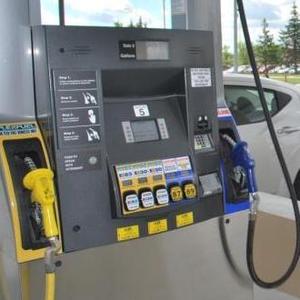RFA: Most manufacturers approve using E15 in MY 2017 vehicles

November 30, 2016
BY Renewable Fuels Association
More than 80 percent of new 2017 model year vehicles are approved by the manufacturer to use E15 , according to an analysis of warranty statements and owner’s manuals conducted by the Renewable Fuels Association. That is up from last year, when about 70 percent of model year 2016 vehicles were approved by automakers for the use of E15.
For the first time, Hyundai Motor Company has approved the use of E15 in model year 2017 Hyundai and Kia vehicles, joining the majority of its auto competitors. Together, Hyundai and Kia represent slightly more than 8 percent of the U.S. light-duty automobile market.
In 2012, EPA approved the use of E15 in vehicles built in model year 2001 or later. However, auto manufacturers did not retroactively endorse the use of E15 in legacy vehicles that were already on the road.
Other key points from RFA’s analysis include:
Advertisement
Advertisement
-- Chrysler, General Motors and Ford) which collectively represent 45 percent of U.S. market share, clearly allow E15 in their vehicles. GM started approving the use of E15 with its model year 2012 vehicles, while Ford joined the next year and Chrysler began E15 approval with its model year 2016 vehicles.
-- Other automakers offering E15 approval for model year 2017 vehicles include Honda, Toyota, Volkswagen Group, and Tata Motors (maker of Land Rover and Jaguar). Altogether, auto manufacturers with about 80 percent of the U.S. market share approve the use of E15 in their model year 2017 vehicles.
-- With 9 percent of the U.S. market share, Nissan Motor Corporation remains the largest vehicle manufacturer that does not explicitly approve E15 in its vehicles. Despite announcing earlier this year that it is developing a vehicle powered by an ethanol fuel cell, the automaker only approves the use of E10 in its vehicles. Curiously, Nissan approves the use of gasoline containing up to 15 percent MTBE, a toxic additive that is banned in more than two dozen states.
Advertisement
Advertisement
-- Mazda, Subaru and The Daimler Group (maker of Mercedes-Benz) also continue to exclude E15 from fuel approvals and warranty statements. Together, the three manufacturers own about 7.5 percent of the U.S. market share.
-- While neither automaker approves the use of E15, both Mercedes-Benz and Nissan produce some flex fuel vehicle models that are capable of operating on up to 85 percent ethanol blends (E85).
RFA estimates that from 25 to 30 percent of the 230 million vehicles on the road today are clearly approved by the automaker to use E15. Meanwhile, roughly 90 percent of vehicles on the road were built in 2001 or later, meaning they are legally approved by EPA to use E15.
“This analysis demonstrates that automaker acceptance and approval of E15 continues to expand rapidly,” said RFA President and CEO Bob Dinneen. “More than four out of every five new vehicles carries the manufacturer’s explicit endorsement of E15, putting to rest the myth propagated by the American Petroleum Institute that automakers don’t allow or warranty the use of this lower-cost, higher-octane fuel blend. We applaud Hyundai for joining the ‘E15 Club’ with its model year 2017 vehicles, and we’re thrilled to see Mini going above and beyond to offer E25-compatible vehicles. At the same time, we encourage Nissan, Mazda, Subaru and Daimler to get with the times and offer their customers greater freedom and flexibility when it comes to making a fuel choice at the pump.”
The RFA analysis can be found here.
Related Stories
The USDA’s Risk Management Agency is implementing multiple changes to the Camelina pilot insurance program for the 2026 and succeeding crop years. The changes will expand coverage options and provide greater flexibility for producers.
EcoCeres Inc. has signed a multi-year agreement to supply British Airways with sustainable aviation fuel (SAF). The fuel will be produced from 100% waste-based biomass feedstock, such as used cooking oil (UCO).
SAF Magazine and the Commercial Aviation Alternative Fuels Initiative announced the preliminary agenda for the North American SAF Conference and Expo, being held Sept. 22-24 at the Minneapolis Convention Center in Minneapolis, Minnesota.
Saipem has been awarded an EPC contract by Enilive for the expansion of the company’s biorefinery in Porto Marghera, near Venice. The project will boost total nameplate capacity and enable the production of SAF.
Global digital shipbuilder Incat Crowther announced on June 11 the company has been commissioned by Los Angeles operator Catalina Express to design a new low-emission, renewable diesel-powered passenger ferry.
Upcoming Events










